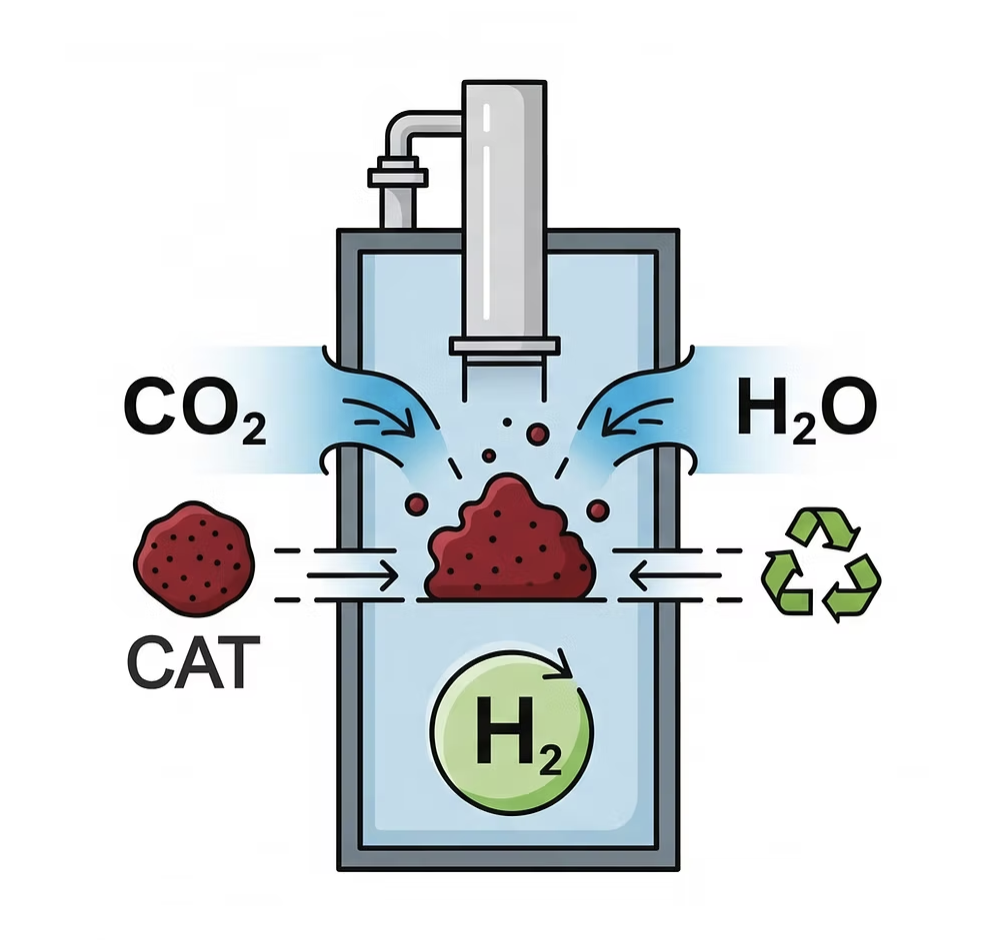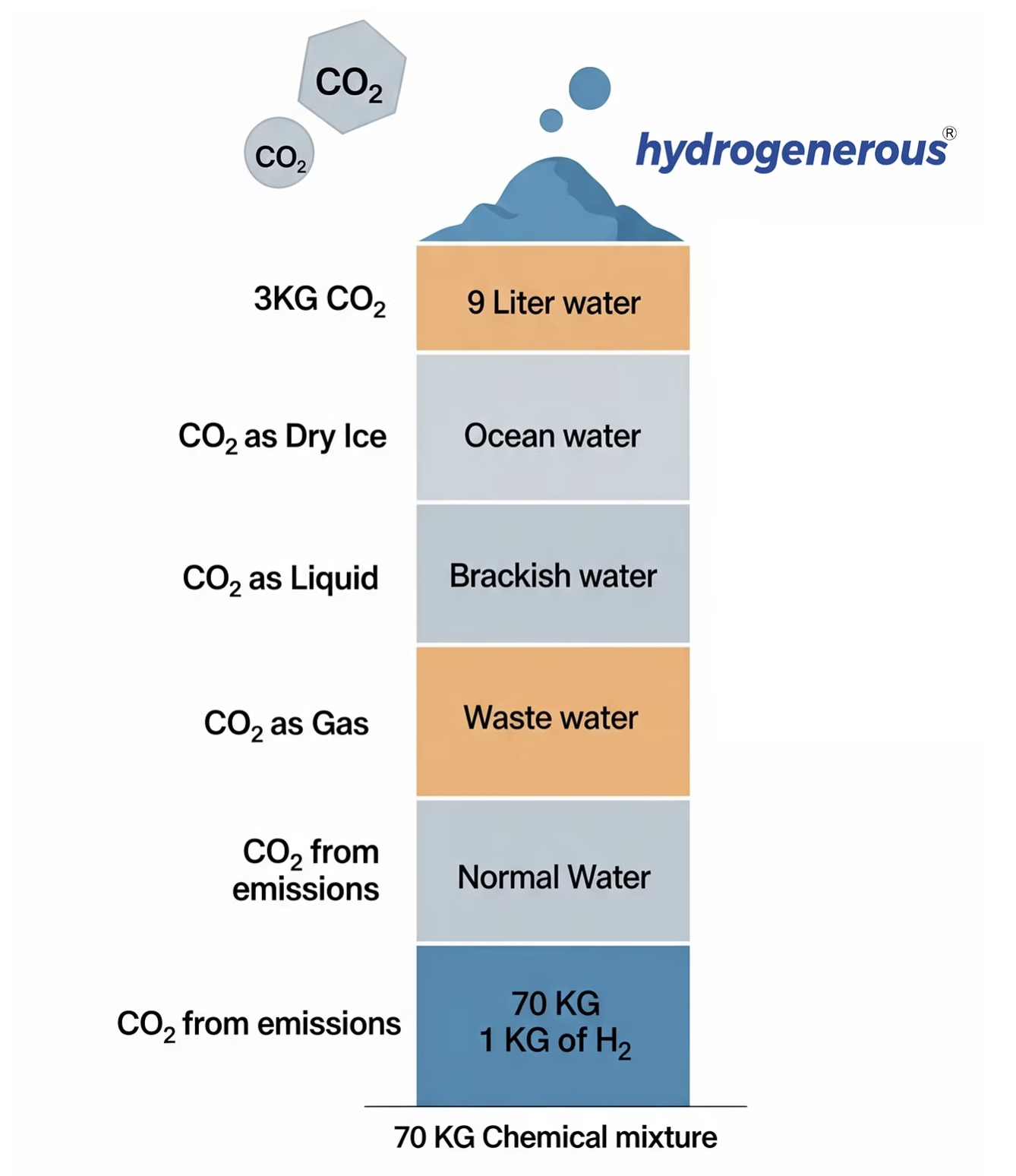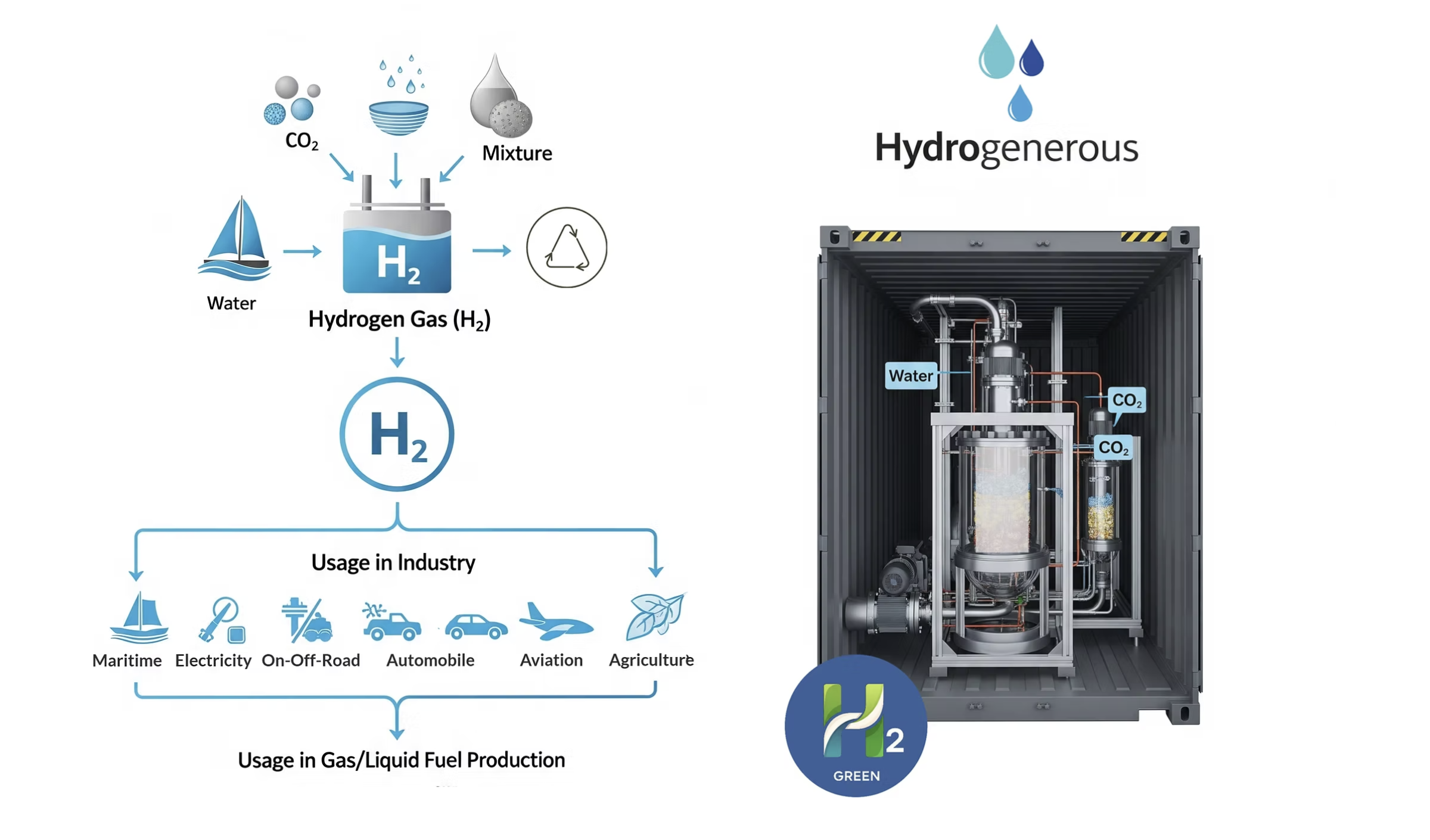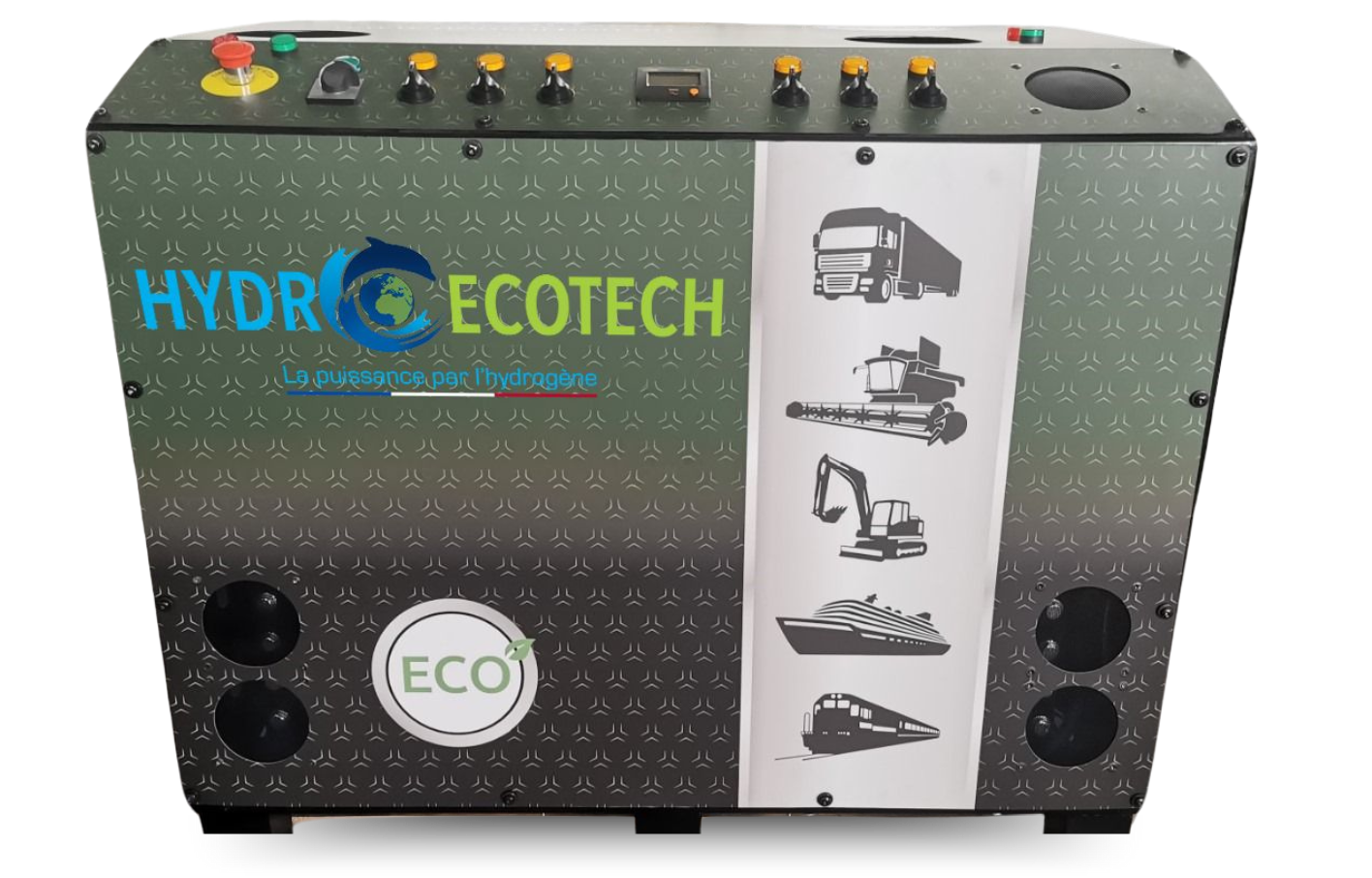
Nous capturons le CO₂ rejeté, nous le recyclons et le transformons en Hydrogène.
Industrie du ciment
Secteur du transport
Industrie métallurgique
Aspects clés
La double avancée chimique, « Stockage du CO2 sans utilisation vs utilisation du CO2 pour produire de l’hydrogène vert : mise en avant des avantages écologiques et économiques de la méthode Hydrogenerous ».

De quoi avons-nous besoin ?
La mise en place d’un projet pilote au Danemark, en Inde, au Royaume-Uni et dans d’autres pays présente des défis d’intégration uniques, qui nécessitent la convergence de divers éléments pour former un tout cohérent. Si le soutien aux PME au Danemark peut être limité, nos activités s’étendent également à l’ensemble de l’UE, à la Suisse et à l’Asie, offrant ainsi des opportunités plus larges.
Utilisation à grande échelle 100 MWh
Adjacent à l’usine, le réacteur à piscine immergée de 100 MWh utilise efficacement les émissions de l’installation, répondant à ses besoins quotidiens en électricité tout en produisant des combustibles destinés à l’exportation.


Hydrogène Durable – Transformer le CO₂ en énergie utile
HydroEcotech développe, aux côtés de ses partenaires, une technologie innovante de capture et de valorisation du CO₂ permettant de le convertir directement en hydrogène vert grâce à un réacteur Carbon-to-Power.
Contrairement aux solutions classiques, ce procédé repose sur une réaction chimique ne nécessitant aucune électricité externe, fonctionne à température ambiante et assure une production continue 24/7, indépendamment des conditions climatiques.
Le système utilise le CO₂ capté et de l’eau non potable (eau de mer, saumâtre ou recyclée) comme intrants, dans une logique de boucle circulaire. Modulaire et conteneurisé, il permet une intégration rapide sur sites industriels, portuaires ou énergétiques, en transformant un passif carbone en ressource énergétique durable.
Cette approche ouvre la voie à un hydrogène vert compétitif, localement produit, et directement exploitable pour accélérer la transition énergétique.
HydroSEA : La Décarbonation Intelligente et Connectée du secteur Maritime et Industriel
LIVIATAN S-9000


Notre solution pour le transport maritime !
HydroSEA propose une gamme complète de solutions de décarbonation pour le secteur maritime et industriel, alliant intelligence artificielle et optimisation en temps réel pour réduire les émissions polluantes et améliorer la performance des moteurs.
🔹 LIVIATAN S-9000 – Décarbonation ponctuelle : Idéale pour les prestations de nettoyage moteur, cette machine utilise un algorithme avancé pour maximiser l’efficacité du traitement en fonction des cycles d’utilisation.
🔹 HybridOgen® – Décarbonation embarquée et connectée : Synchronisée avec le moteur, cette machine démarre et s’arrête automatiquement en même temps que le moteur, assurant un traitement continu sans intervention manuelle. Son IA embarquée analyse en temps réel les paramètres moteur et ajuste dynamiquement la production et l’injection d’hydrogène, garantissant une combustion propre et optimisée sans stockage ni modification structurelle.
Informations techniques
Tension AC (V) : 380V
Puissance : 16000W
Production de gaz HHO max : 9000 l/h
Consommation d’eau max. (l/h) : 2,5
Remplissage d’eau : manuel
Capacité du réservoir d’eau : 192 litres
Autonomie : 77 heures
Dimensions – L x l x h (mm) : 1200 x 1000 x 900 mm
Poids : 390 kg
Garantie : 24 mois
Temps de nettoyage en fonction de la taille du moteur (machine à 100% de puissance) :
-> Nettoyage de 30 minutes : jusqu’à 36 litres de moteur ;
-> Nettoyage de 1 heure : jusqu’à 72 litres de moteur ;
-> Nettoyage de 1,5 heure : jusqu’à 108 litres de moteur ;
Mesures sous protocole WHTC
Mesures réalisées sur banc par EMITEC selon le protocole WHTC dans le cadre de l’homologation Kraftfahrt-Bundesamt (KBA). Unité HydraGEN HG1 installée sur moteur MAN TGX 18.460 MY 2018, 12,4 L / 338 kW, Euro6.

Pourquoi choisir HydroSEA ?
La décarbonation des moteurs réduit l’accumulation de dépôts carbonés, améliorant ainsi l’efficacité de la combustion, diminuant la consommation de carburant et les émissions polluantes.
✅ Réduction des émissions polluantes (CO₂, NOₓ, particules fines)
✅ Optimisation du rendement moteur et baisse de la consommation de carburant
✅ Technologie intelligente et autonome, avec monitoring en temps réel
✅ Conformité avec les normes environnementales maritimes
Que ce soit pour une intervention ponctuelle ou une optimisation continue, HydroSEA révolutionne la décarbonation maritime en combinant IA, monitoring intelligent et performance énergétique.

